- Home
- Stephanie Laurens
In Pursuit Of Eliza Cynster Page 14
In Pursuit Of Eliza Cynster Read online
Page 14
He felt her gaze on his face and turned to meet it.
Eliza smiled. “You’re being very understanding. I appreciate it.” He hadn’t railed or ranted; he hadn’t made her feel responsible, or made her feel even worse than she already did, about disrupting his plans.
He hadn’t even made her feel stupid — more stupid — about not being able to ride well. He’d accepted both her and her shortcomings, and was reworking his plan without even a hint of contempt or sarcasm.
“Whatever we do, I’ll do the very best I can not to slow us down.”
He inclined his head, then looked back along the road. “I just hope our decoy is faring better than us and has drawn all pursuit far away.”
After trading inventive expletives for the first ten minutes of their enforced trek, Cobby and Hugo were trudging along in silence, one on either side of poor Jasper, when the thunder of approaching hooves had them halting and looking back along the highway.
Several carriages and the early mail had lumbered past them, but this was the first rider to come their way.
They glimpsed the rider, coming on fast on a largish horse, before a dip in the road hid him from view.
Cobby viewed Hugo critically. “Your wig’s askew.”
On the verge-side of their equipage, Hugo righted the wig, then flipped up the cloak’s hood and stepped closer to Jasper, so that the horse largely hid him from anyone on the road.
The horseman crested a rise a little way back.
Studying the rider, Cobby stiffened. “He’s got a pistol.”
“In a holster or out?” Hugo kept his head down.
“In his hand.”
The horseman came down on them in a flurry of heavy hooves. Hauling back on his reins, he waved the pistol at them both. “Hold hard! Don’t move!”
Cobby spread his arms, palms empty. “We’ve already stopped. Who the devil are you?” He did his best imitation of Jeremy’s voice.
The horseman frowned. Pistol still in his hand, but not pointed anywhere in particular, he quieted his prancing horse, then looked searchingly at Cobby, then at Hugo, then raked the curricle with a knowing eye.
Frown deepening, he fixed his gaze on Cobby. “You take this curricle from the Rising Sun Inn on South Bridge Street?”
“Yes.” Cobby nodded pugnaciously. “What of it? It’s mine.”
The horseman eyed him for a moment, then looked hard at Hugo. Lastly, he looked at Jasper, then shook his head. “Never mind. Thought you were someone else.”
“Indeed?” Cobby set his hands on his hips. “Is that any reason to come bailing us up waving a pistol? As you can see, our horse has gone lame —”
The rider swore, kicked his horse around, and took off back toward Edinburgh.
Cobby stood in the road and watched him go.
Once the rider disappeared back over the crest, Hugo came around Jasper and joined Cobby.
The rider reappeared further along the road, riding hell-for-leather back to Edinburgh.
Cobby grimaced and reverted to his own voice to say, “Well, that didn’t take long.”
Putting back his hood, Hugo removed the golden wig and scratched his head. “I really thought our decoy mission would last longer — distract them longer — than just a few hours. I assume that was Taylor, the coachman-cum-guard.”
“Do you think he recognized Jer’s curricle?” Cobby turned to pat Jasper’s long neck. “Or Jasper here?”
“He might have, but as they don’t know who Jer is, they can’t make anything of that.” Hugo considered. “Most likely they’ll just discard us as an unconnected coincidence — nothing to do with Eliza.”
“When Taylor gets back with the news, they’ll search again to see if they can pick up Jer’s trail.”
“No,” Hugo said. “They don’t know Jer exists. Or if they do, they think he’s you. But they’ll quarter the town for Eliza, or any sight of her, which, with luck, won’t get them far.”
Cobby shifted. “So what now for us?” He glanced across at Hugo. “What should we do?”
Both cogitated, then Hugo said, “I’d feel much more comfortable if I knew Jer and Eliza had got well away. Perhaps”— he swung around and looked down the road toward Dalkeith —“we should go on and get a fresh horse as planned, then drive back to Edinburgh and check with Meggin, and, if she’s heard nothing to the contrary, check with the Grassmarket stables, too. If all seems to have fallen out as per Jer’s plan, then we can drive out again along the Great North Road and still be at Wolverstone before him.”
Brows raised, Hugo turned back to Cobby.
Meeting his gaze, Cobby nodded. “Good thinking. That’s what we’ll do.”
It took McKinsey some time to locate the particular urchin he wanted, then another half hour for the urchin to seek and report back.
“Three flash gents h’escorted a lady through the tunnels last night. Well, h’early this morning, to be h’exact.” Rabbit, so called because of his ears and his ability to scamper quickly through the vaults, added, “Three of the Dougan lads acted as guides-like. Said one of the gents paid them well.”
Perched on the remnants of an old stone wall not far from the mouth of the South Bridge vaults — the tunnels weren’t built for men of his size — McKinsey received the news with outward patience. “Did the Dougan lads say anything about the three men? Or the lady herself?”
“Just that the lady had bright gold hair. She had a cloak on, and put up the hood, but they saw her hair afore she did.”
“And the men?”
“Seems they were well spoken, sort of quiet-like — not the usual roisterers come looking for a lark. Serious men. From how they spoke, two were from here — h’Edinburgh — but the other, the man who paid, he was h’English. Fer certain.”
“Did anyone see where they went after they came out?”
“Nah.” Rabbit nodded toward the town. “Just went out into the night, they did.”
“In which direction? Palace or Castle?”
“Palace. Confident like — they seemed to know where they was going.”
“Excellent.” McKinsey reached into his pocket, sorted coins in his palm. “You’ve done well.”
Rabbit — who knew exactly who McKinsey really was — straightened to attention and tugged his lank forelock. “Thank you, m’lord.”
McKinsey held out several coins.
Rabbit received the small hoard in his dirty palms. “Always a pleasure doin’ business with you, m’lord.”
McKinsey laughed. He smiled at Rabbit, then rose to his feet. “Goodbye, Rabbit.” He resisted the urge to ruffle the boy’s dark hair. “Take care of yourself and your mother.”
“I will, m’lord.” Slipping the money into the inside pocket of his ragged jerkin, Rabbit snapped off a jaunty salute. “Until next time, m’lord.”
McKinsey watched Rabbit scamper back into his burrow, then turned and climbed a short slope and stepped back into the world of the city’s streets. He headed for Niddery Street.
It was now midmorning and while, courtesy of Rabbit, he’d confirmed how his package had escaped the house, when, and with what escort, he still didn’t know where she’d gone subsequently, or who, exactly, had come to her aid.
Given the social imperatives, however, he wasn’t the least surprised that she’d set off back to England as quickly as she’d been able. Assuming, of course, that she was the lady who had left in some Englishman’s curricle at first light. He wondered whether that Englishman was the same man who’d escorted her through the vaults in the wee hours.
What continued to puzzle him was how anyone had known where she was. Was it significant that one of the rescuers was English, and that she might well have fled south with him? The answer to that had to lie with Scrope and his people, even if they didn’t realize it.
He refocused on what waited for him in the house in Niddery Street.
Since he’d left an hour ago, instinct had been nagging; finally considering why … it was Sc
rope’s stunned bewilderment that had surprised him. The woman, the nurse, her reactions he’d understood, but Scrope’s … the man was supposed to be a consummate professional, yet he’d been knocked totally off-balance and had shown no signs of quickly righting himself.
McKinsey had expected Scrope to be quick to reengage, to reassess and rejig his plans. To accept what had gone wrong and swiftly revise, replan, and be ready to move forward in whatever new direction was required to reach their ultimate goal.
Instead, Scrope had given an excellent imitation of a stunned mullet.
Comparing Scrope’s behavior at the house with his reputation … according to the latter, Scrope had never failed in any of his questionable endeavors. Perhaps it was simply the looming reality of his first-ever failure that had so rocked the man?
McKinsey snorted. Coping with plans gone awry was something he was becoming, as far as he was concerned, too expert at. He could certainly give Scrope lessons in the futility of raging against fate. One simply had to take the cuffs she handed out and roll with them. Then get back up, reassess, and come at the desired goal from some other direction.
The truth was, stubbornness combined with doggedness rarely failed. Not in the end.
So he had found.
Which brought him to where he was now, the situation he currently faced.
All things considered, all possibilities weighed, he had a lurking suspicion fate, that fickle female, was once again playing games with him. That she was, in a roundabout way, setting him up to fail again.
Unfortunately, he couldn’t yet tell which outcome awaited him at the end of this act — triumph or defeat. Until he learned who had spirited Eliza Cynster away, until he knew what her view of her rescuer was — whether, as with her elder sister, Heather, there was, or would soon be, more between damsel and rescuer than mere mutual regard — he wouldn’t know what his role in fate’s current production would be.
He’d set the stage, then opened the curtain, but fate had taken over and was now running the show.
Reaching High Street, he strode along.
One way or another, Eliza Cynster had to come out of this with a husband; the social imperatives he’d brought into play would permit no other outcome. The only question he had on that point was whether said husband would be him — allowing him to go forward with his plan to reclaim the vital goblet from his mother — or the Englishman.
If the Englishman — until he learned otherwise, McKinsey would assume it was he who had rescued Eliza — proved to be a man of worth, one whom she wanted as her husband, and who wanted her, then honor, that quality McKinsey was determined to cling to no matter his mother’s demands, would force him to draw back and let the pair escape.
Back over the border, and presumably to their wedding.
Where that would leave him, he didn’t want to think. Literally did not wish to consider, not until he was forced to.
“Sufficient unto the day …” Jaw clenching, he turned down Niddery Street and strode for the house.
He needed to learn just how the Englishman had been drawn into this. And after that, he needed to locate Eliza and her rescuer, and determine whether the silly chit needed him to step in and save her from said rescuer, or instead, whether the Englishman was Eliza Cynster’s ordained fate.
“I want to know how some Englishman learned you had Eliza Cynster in your keeping.” McKinsey sat in an armchair in the drawing room of the terrace house, his gaze resting with cool, insistent, implacable command on Scrope, who sat on a straight-backed chair facing him.
The nurse sat on a chair alongside Scrope, her back straight, her fingers nervously twining.
Since McKinsey had left the house, Scrope had gone from bafflement to belligerence. He stared back at McKinsey. “I haven’t the slightest idea. We didn’t advertise her presence.”
“Nevertheless, an Englishman assisted her escape from this house, and as we’ve heard from Taylor, an Englishman drove away from Edinburgh this morning with a lady of her description sitting beside him.”
Scrope hesitated, then said, “There’s no reason to believe that the man who took her out via those blasted tunnels is the same man who’s driving her south. She might simply have talked some likely traveler into taking her. She has no money on her, but her name would mean something to another Englishman, enough to ensure he would help her.”
McKinsey inclined his head. “All of that might be true, yet someone found out she was here and showed her how to escape. At some point someone saw her and, as you haven’t taken her outside since you brought her here, they must have followed you here yesterday.”
Scrope frowned, and McKinsey knew he hadn’t been on guard against being followed when they’d walked Eliza Cynster to the house.
McKinsey fixed his gaze on Scrope’s face. “Tell me all — every last detail — of your journey from Grosvenor Square to Edinburgh.”
“I told you.” Scrope gestured impatiently. “There’s nothing to tell.”
“Bear with me.” McKinsey’s response was no request. “You drugged Miss Cynster, carried her out of her cousin’s house, bundled her into a coach, and drove out of Grosvenor Square. Start from there — what happened next?”
Scrope scowled but grudgingly obliged. “We drove out along the Oxford Road, through Oxford —”
“Had Miss Cynster revived by then?”
Scrope hesitated, then replied, “Yes and no — she was still groggy. She slept much of the way.”
Scrope pretended not to notice the sidelong glance the nurse sent him.
McKinsey saw and suspected Eliza’s grogginess had been arranged. Why else hire a nurse-companion to do a maid’s job? Scrope had disobeyed his explicit orders in that, but that was now water under the bridge. “Very well — I take it Miss Cynster was too ‘groggy’ to have attracted anyone’s attention while you drove through Oxford. At what point did she become more … shall we say, compos mentis?”
Scrope ignored the implication. “She started to stir as we left York, but then she slept again.”
McKinsey had seen her dozing in York. “Very well — concentrate on the journey between Oxford and York. Go over each stage, each village and town you passed through. Was there any instance of any gentleman taking any interest at all in the coach and its occupants?”
At last Scrope stopped and thought.
The nurse thought, too.
Eventually, however, both shook their heads.
“No,” Scrope declared. “There was nothing — nothing for us to report. No incident of any kind.”
“No one who chatted to Taylor?” McKinsey asked. “Who lounged about and started up a conversation at any of your halts?”
“No.” The nurse spoke up. “When he’s making quick changes, Taylor rarely leaves the box.”
“And he drove straight through?”
The nurse shrugged. “It’s his job.”
Scrope shifted. “I spelled him through a few of the lonelier stretches so he could catch a few hours sleep, but we didn’t halt for any reason other than changing horses.”
That married with McKinsey’s estimation based on the time they’d passed through York. He kept his gaze steady, locked on the pair before him. “All right. So you passed through York without incident. What about the stretch from York to Middlesbrough?”
Again, both Scrope and the nurse considered; again, they shook their heads.
“You mentioned Miss Cynster stirring at York. When did she properly wake up?”
The nurse answered. “North of Middlesbrough. We spoke with her, then she dozed off again. She woke when we crossed the bridge leaving Newcastle.”
“On either occasion, either on the road north of Middlesbrough, or as you left Newcastle, did she get close to the window, or make any attempt to attract someone’s attention?”
“Not there,” Scrope replied.
McKinsey fixed his gaze on Scrope’s face. His tone was deceptively mild when he asked, “Are you telling me she did m
ake a bid to attract someone’s attention at some point?”
Scrope’s scowl intensified. “Yes.” He waved dismissively. “But nothing came of it.”
McKinsey had grown very still. “Yet she’s escaped.”
“It had nothing to do with that. We were well out of Newcastle, only thirty miles from the border, and in wide-open countryside.”
“On the road to Jedburgh?”
Scrope nodded. “Precisely. Forests and moors, and not much else. She appeared to be dozing again, slumped in the corner, then we slowed to let a curricle past, and she suddenly sprang to life.”
“What happened?” McKinsey rapped out.
“She flung herself at the window, battered on it, screamed for help.”
“And?” McKinsey couldn’t believe he’d had to drag it out of them.
“Nothing came of it!” Scrope all but glared back. “We hauled her back from the window. The curricle was already past. I had Taylor keep an eye on it, but all that happened was that the driver turned around and looked back at the coach, then shrugged and simply drove on. Taylor kept watch for a while, but the curricle didn’t turn and follow.”
McKinsey pictured the scene in his mind. “Did either of you get a look at the curricle’s driver?”
Both Scrope and the nurse shook their heads.
“Both carriages were moving,” the nurse explained. “They’d slowed, but the driver still whisked past the window very quickly. Miss Cynster’s effort lasted no more than a moment — an instant — before we pulled her back, but even then the curricle was long past.”
“But she …” McKinsey considered the picture in his mind. “She was sitting in the corner, deep in the corner, so she would have seen the curricle driver as he approached, going the other way. She had time to see him, recognize him, and act.”
Scrope snorted. “More like that was the only curricle, or even carriage or cart that we passed. She saw the curricle and grasped what she saw as her last chance — that was all there was to it. No reason to imagine she knew the driver.”
Yet she’s gone. McKinsey eyed Scrope but didn’t bother to point out the obvious. What Scrope thought no longer mattered.

 Lady Osbaldestone’s Plum Puddings: Lady Osbaldestone’s Christmas Chronicles Volume 3
Lady Osbaldestone’s Plum Puddings: Lady Osbaldestone’s Christmas Chronicles Volume 3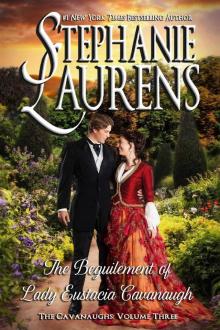 The Beguilement of Lady Eustacia Cavanagh: The Cavanaughs Volume 3
The Beguilement of Lady Eustacia Cavanagh: The Cavanaughs Volume 3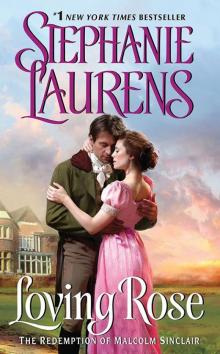 Loving Rose: The Redemption of Malcolm Sinclair (Casebook of Barnaby Adair)
Loving Rose: The Redemption of Malcolm Sinclair (Casebook of Barnaby Adair)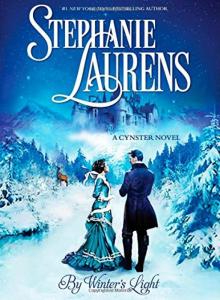 By Winter's Light
By Winter's Light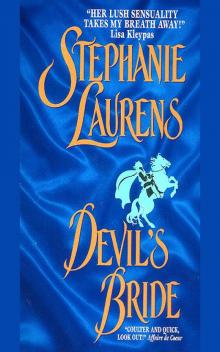 Devil's Bride
Devil's Bride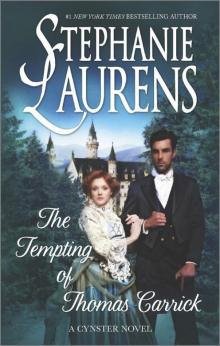 The Tempting of Thomas Carrick
The Tempting of Thomas Carrick![Cynster [22.00] A Match for Marcus Cynster Read online](http://i1.bookreadfree.com/i/03/16/cynster_[22_00]_a_match_for_marcus_cynster_preview.jpg) Cynster [22.00] A Match for Marcus Cynster
Cynster [22.00] A Match for Marcus Cynster All About Love c-6
All About Love c-6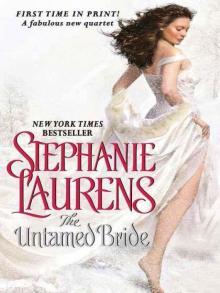 Cobra 01 The Untamed Bride
Cobra 01 The Untamed Bride A Lady of Expectations and Other Stories
A Lady of Expectations and Other Stories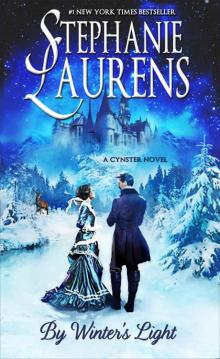 By Winter's Light_A Cynster Novel
By Winter's Light_A Cynster Novel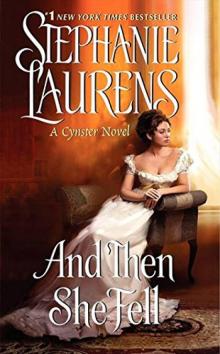 And Then She Fell
And Then She Fell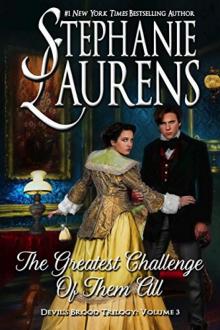 The Greatest Challenge of Them All
The Greatest Challenge of Them All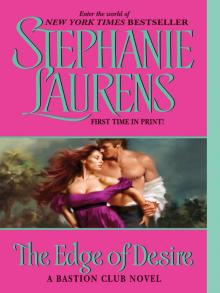 The Edge of Desire
The Edge of Desire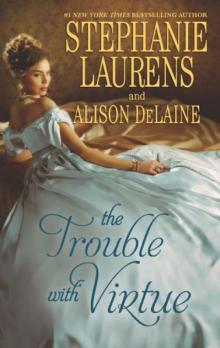 The Trouble With Virtue: A Comfortable WifeA Lady by Day
The Trouble With Virtue: A Comfortable WifeA Lady by Day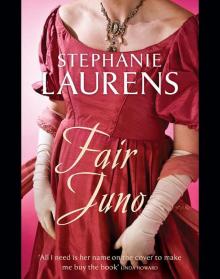 Fair Juno
Fair Juno THE LEGEND OF NIMWAY HALL: 1750 - JACQUELINE
THE LEGEND OF NIMWAY HALL: 1750 - JACQUELINE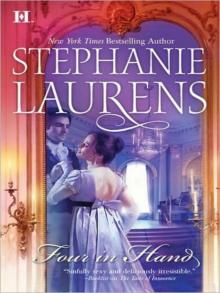 Four In Hand
Four In Hand The Reckless Bride
The Reckless Bride Stephanie Laurens Rogues' Reform Bundle
Stephanie Laurens Rogues' Reform Bundle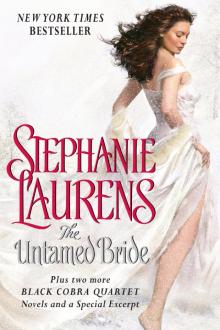 The Untamed Bride Plus Black Cobra 02-03 and Special Excerpt
The Untamed Bride Plus Black Cobra 02-03 and Special Excerpt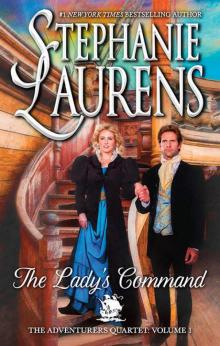 The Lady's Command (Adventurers Quartet #1)
The Lady's Command (Adventurers Quartet #1) The Seduction of Sebastian Trantor
The Seduction of Sebastian Trantor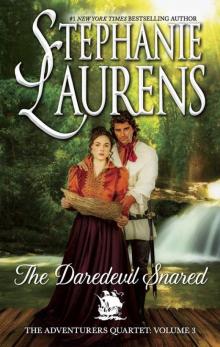 The Daredevil Snared (The Adventurers Quartet Book 3)
The Daredevil Snared (The Adventurers Quartet Book 3)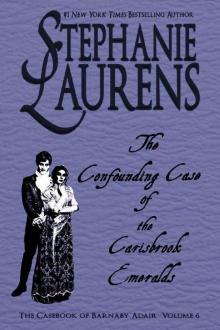 The Confounding Case Of The Carisbrook Emeralds (The Casebook of Barnaby Adair 6)
The Confounding Case Of The Carisbrook Emeralds (The Casebook of Barnaby Adair 6) Lord of the Privateers (The Adventurers Quartet)
Lord of the Privateers (The Adventurers Quartet)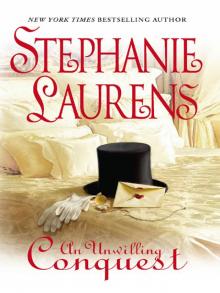 An Unwilling Conquest
An Unwilling Conquest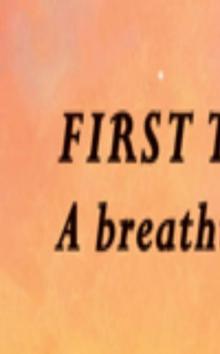 Brazen Bride
Brazen Bride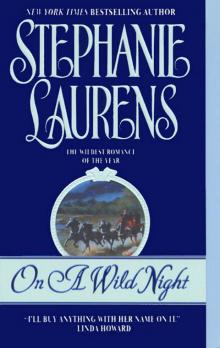 On a Wild Night
On a Wild Night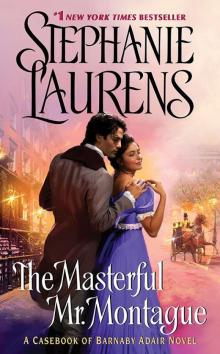 The Masterful Mr. Montague: A Casebook of Barnaby Adair Novel
The Masterful Mr. Montague: A Casebook of Barnaby Adair Novel Lord of the Privateers
Lord of the Privateers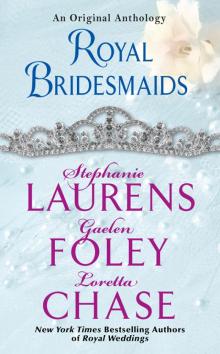 Royal Bridesmaids
Royal Bridesmaids Beyond Seduction
Beyond Seduction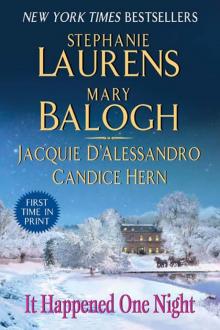 It Happened One Night
It Happened One Night The Ideal Bride
The Ideal Bride The Promise in a Kiss
The Promise in a Kiss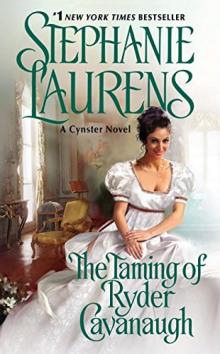 The Taming of Ryder Cavanaugh
The Taming of Ryder Cavanaugh The Ideal Bride c-12
The Ideal Bride c-12 All About Love
All About Love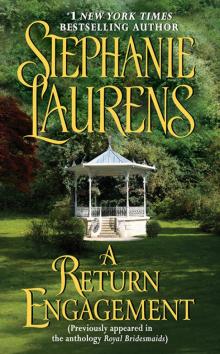 A Return Engagement
A Return Engagement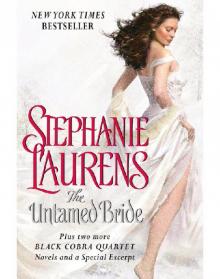 The Untamed Bride Plus Two Full Novels and Bonus Material
The Untamed Bride Plus Two Full Novels and Bonus Material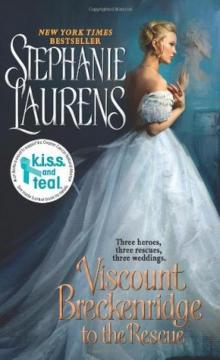 Viscount Breckenridge to the Rescue
Viscount Breckenridge to the Rescue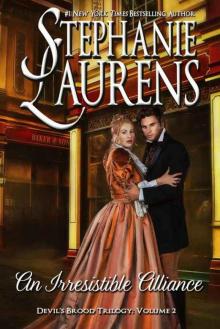 An Irresistible Alliance (Cynsters Next Generation Novels Book 5)
An Irresistible Alliance (Cynsters Next Generation Novels Book 5)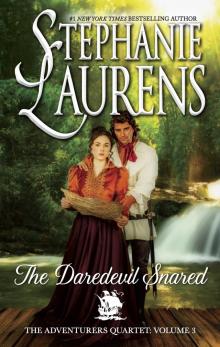 The Daredevil Snared
The Daredevil Snared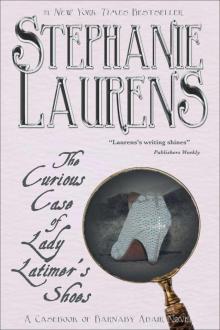 The Curious Case of Lady Latimer's Shoes: A Casebook of Barnaby Adair Novel
The Curious Case of Lady Latimer's Shoes: A Casebook of Barnaby Adair Novel A Lady of Expectations and Other Stories: A Lady of ExpectationsThe Secrets of a CourtesanHow to Woo a Spinster
A Lady of Expectations and Other Stories: A Lady of ExpectationsThe Secrets of a CourtesanHow to Woo a Spinster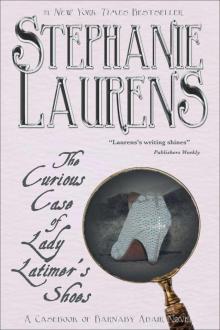 The Curious Case of Lady Latimer's Shoes: A Casebook of Barnaby Adair Novel (The Casebook of Barnaby Adair)
The Curious Case of Lady Latimer's Shoes: A Casebook of Barnaby Adair Novel (The Casebook of Barnaby Adair)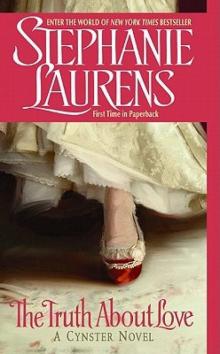 The Truth About Love
The Truth About Love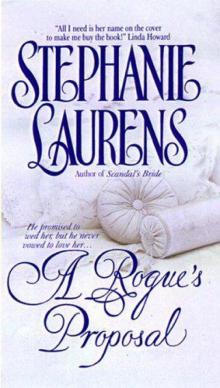 A Rogue's Proposal
A Rogue's Proposal The Elusive Bride
The Elusive Bride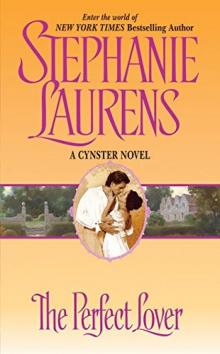 The Perfect Lover
The Perfect Lover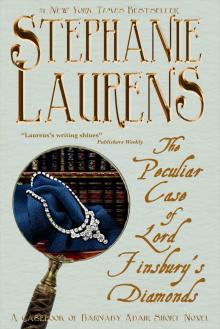 The Peculiar Case of Lord Finsbury's Diamonds: A Casebook of Barnaby Adair Short Novel
The Peculiar Case of Lord Finsbury's Diamonds: A Casebook of Barnaby Adair Short Novel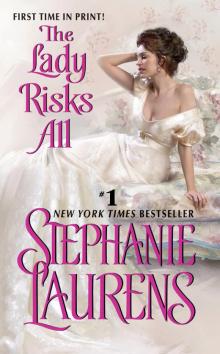 The Lady Risks All
The Lady Risks All The Murder at Mandeville Hall: The Casebook of Barnaby Adair: Volume 7
The Murder at Mandeville Hall: The Casebook of Barnaby Adair: Volume 7 All About Passion
All About Passion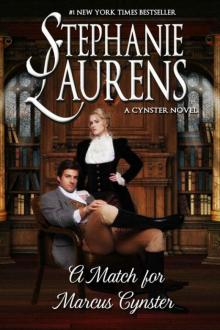 A Match for Marcus Cynster
A Match for Marcus Cynster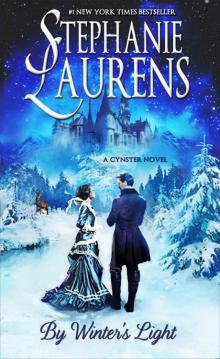 By Winter's Light: A Cynster Novel (Cynster Special Book 2)
By Winter's Light: A Cynster Novel (Cynster Special Book 2)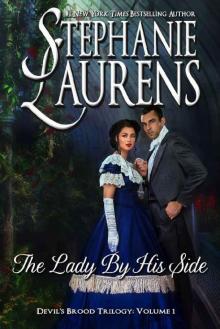 The Lady By His Side
The Lady By His Side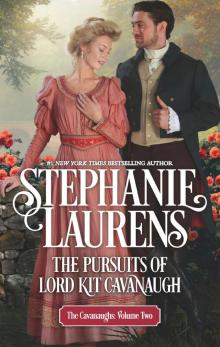 The Pursuits of Lord Kit Cavanaugh
The Pursuits of Lord Kit Cavanaugh Tangled Reins
Tangled Reins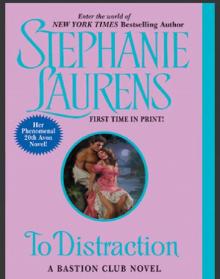 To Distraction
To Distraction A Rake's Vow
A Rake's Vow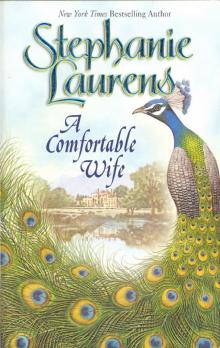 A Comfortable Wife
A Comfortable Wife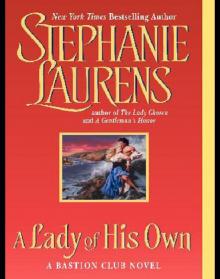 A Lady of His Own bc-3
A Lady of His Own bc-3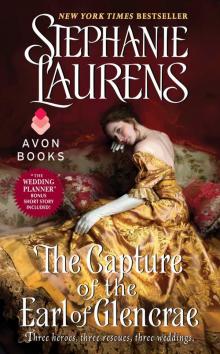 The Capture of the Earl of Glencrae
The Capture of the Earl of Glencrae Scandals Bride c-3
Scandals Bride c-3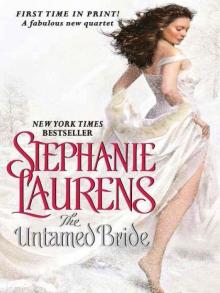 Untamed Bride
Untamed Bride The Brazen Bride
The Brazen Bride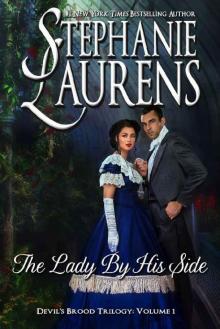 The Lady By His Side (Cynsters Next Generation Novels Book 4)
The Lady By His Side (Cynsters Next Generation Novels Book 4)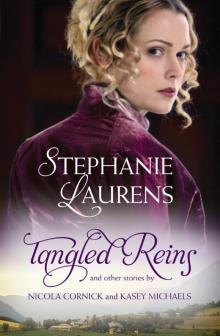 Tangled Reins and Other Stories
Tangled Reins and Other Stories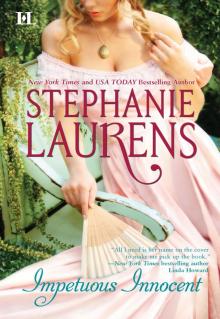 Impetuous Innocent
Impetuous Innocent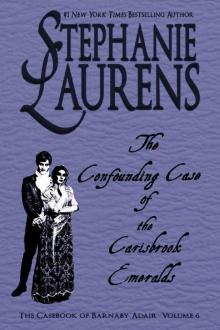 The Confounding Case Of The Carisbrook Emeralds
The Confounding Case Of The Carisbrook Emeralds Stephanie Laurens - B 6 Beyond Seduction
Stephanie Laurens - B 6 Beyond Seduction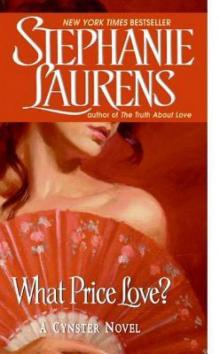 What Price Love?
What Price Love?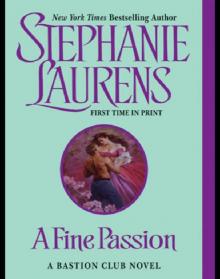 A Fine Passion
A Fine Passion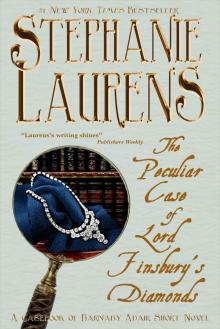 The Peculiar Case of Lord Finsbury's Diamonds: A Casebook of Barnaby Adair Short Novel (The Casebook of Barnaby Adair)
The Peculiar Case of Lord Finsbury's Diamonds: A Casebook of Barnaby Adair Short Novel (The Casebook of Barnaby Adair)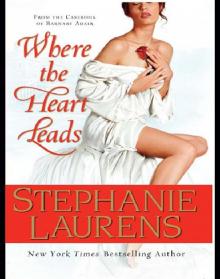 Where the Heart Leads
Where the Heart Leads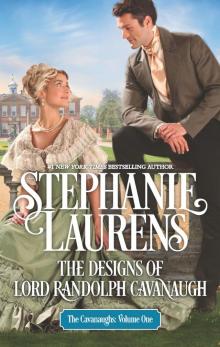 The Designs of Lord Randolph Cavanaugh
The Designs of Lord Randolph Cavanaugh A Secret Love c-5
A Secret Love c-5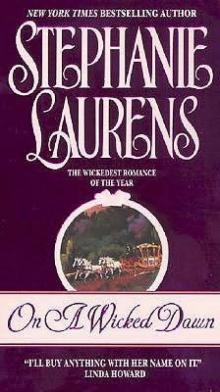 On a Wicked Dawn c-10
On a Wicked Dawn c-10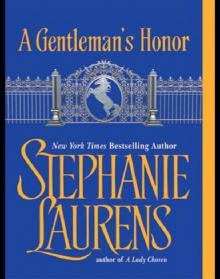 A Gentleman's Honor
A Gentleman's Honor THE LEGEND OF NIMWAY HALL_1750_JACQUELINE
THE LEGEND OF NIMWAY HALL_1750_JACQUELINE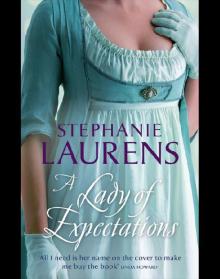 A Lady of Expectations
A Lady of Expectations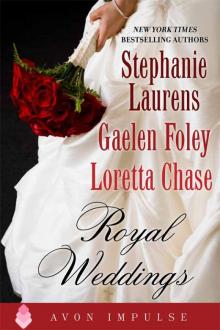 Royal Weddings: An Original Anthology
Royal Weddings: An Original Anthology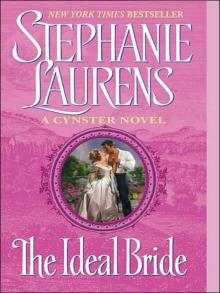 The Ideal Bride (Cynster Novels)
The Ideal Bride (Cynster Novels) Mastered by Love
Mastered by Love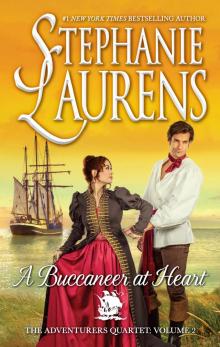 A Buccaneer at Heart
A Buccaneer at Heart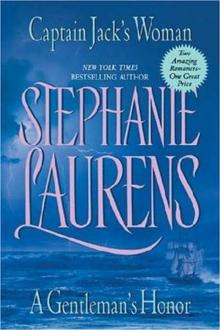 Captain Jack’s Woman / A Gentleman's Honor
Captain Jack’s Woman / A Gentleman's Honor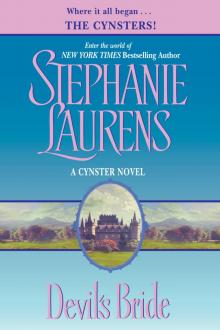 Devil's Bride with Bonus Material
Devil's Bride with Bonus Material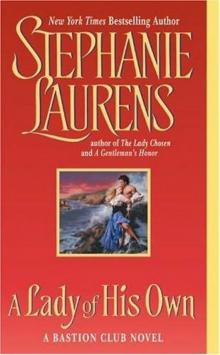 A Lady of His Own
A Lady of His Own A Secret Love
A Secret Love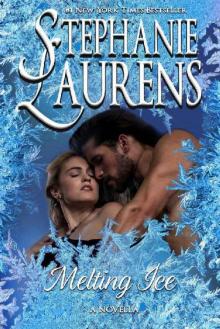 Melting Ice
Melting Ice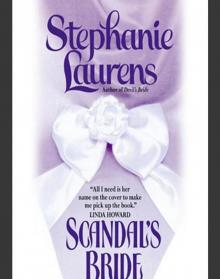 Scandal's Bride
Scandal's Bride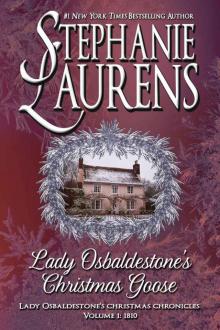 Lady Osbaldestone’s Christmas Goose
Lady Osbaldestone’s Christmas Goose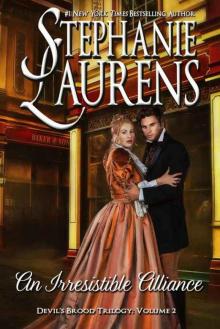 An Irresistible Alliance
An Irresistible Alliance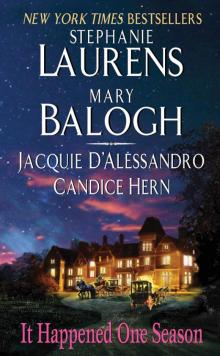 It Happened One Season
It Happened One Season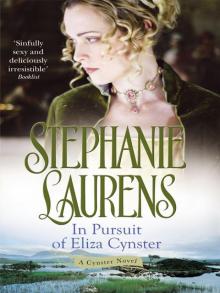 In Pursuit Of Eliza Cynster
In Pursuit Of Eliza Cynster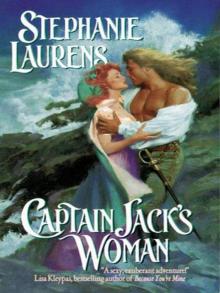 Captain Jack's Woman
Captain Jack's Woman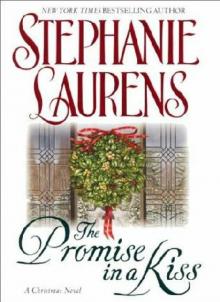 The promise in a kiss c-8
The promise in a kiss c-8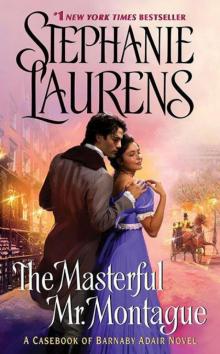 The Masterful Mr. Montague
The Masterful Mr. Montague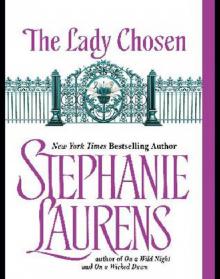 The Lady Chosen
The Lady Chosen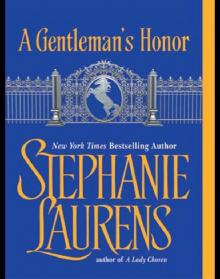 A Gentleman's Honor bc-2
A Gentleman's Honor bc-2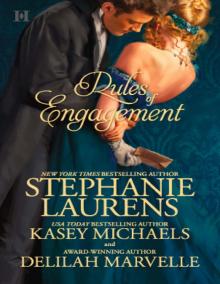 Rules of Engagement: The Reasons for MarriageThe Wedding PartyUnlaced (Lester Family)
Rules of Engagement: The Reasons for MarriageThe Wedding PartyUnlaced (Lester Family) Secrets of a Perfect Night
Secrets of a Perfect Night The Taste of Innocence
The Taste of Innocence On A Wicked Dawn
On A Wicked Dawn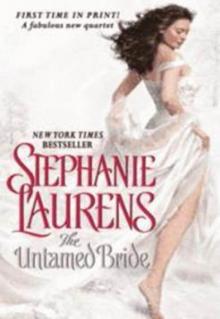 The Untamed Bride
The Untamed Bride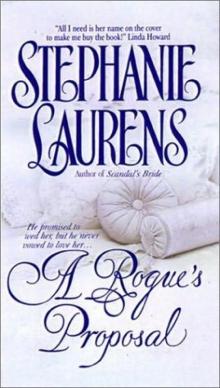 A Rogues Proposal c-4
A Rogues Proposal c-4 Rakes Vow c-2
Rakes Vow c-2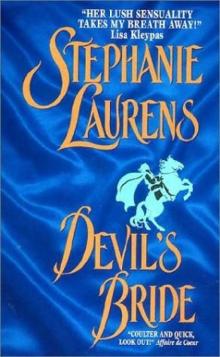 Devils Bride c-1
Devils Bride c-1 Hero, Come Back
Hero, Come Back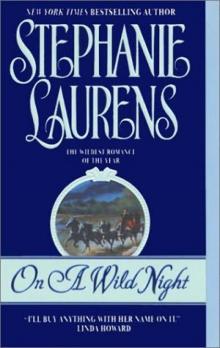 On a Wild Night c-8
On a Wild Night c-8 All About Passion c-7
All About Passion c-7